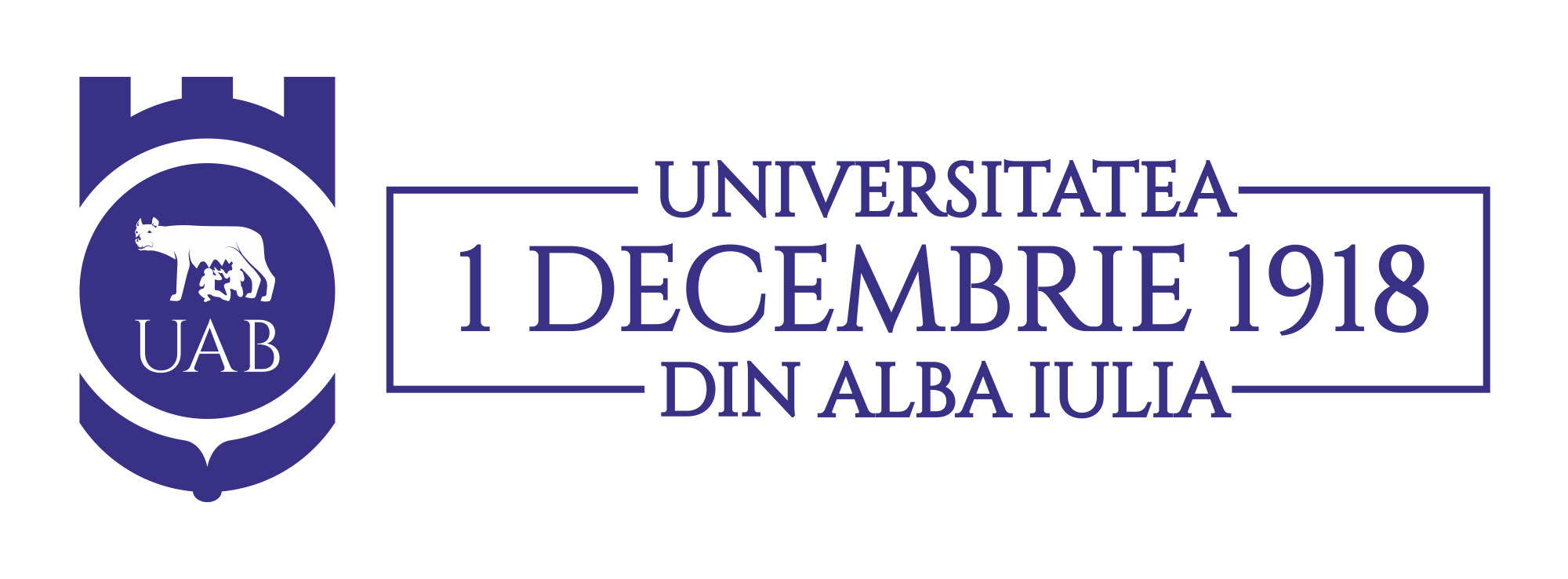About us
8th International Scientific Conference
Tendencies of Knowledge and Social Development in the 21st Century
Tendințe ale cunoașterii și dezvoltării sociale în secolul XXI (ediția a VIII-a)
December 11-12, 2024
Alba Iulia, Romania
IMPORTANT!
The period for submitting abstracts has been extended until October 14, 2024
To register, please send your title, name and institutional affiliation, abstract and keywords to tksd@uab.ro, cc: bogdan.mucea@uab.ro. The title of the email should be: TKSD 2024 - Alba Iulia conference. In the email you need to attach the abstract according to the draft available here!
Home
The Department of Social Sciences at the "1 Decembrie 1918" University of Alba Iulia, in collaboration with Research Institute for Quality of Life (Romanian Academy) and Center for Social Development and Human Resources Research (CSDHRR), invites you to the 8th Edition of the International Scientific Conference ”Tendencies of Knowledge and Social Development in the 21st Century” in Alba Iulia, Romania.
The conference welcomes academic staff from universities, doctoral students, researchers, and practitioners interested in presenting recent research or theoretical findings in the field of social sciences or related areas.
The conference will cover a diverse range of topics, organized into sections and roundtable discussions:
1. Social Impact, Politics, and Social Services: This section will explore the influence of social policies, political decisions, and the provision of social services on societal development.
2. Current Territory Knowledge and Development: Discussions in this section will focus on understanding the dynamics of contemporary territorial development and its implications for social progress.
3. Methodological Perspectives in Social Knowledge: This section will delve into various methodological approaches used in social research, examining their strengths, weaknesses, and applications in understanding social phenomena.
4. Identity, Solidarity, and Social Inclusion: Participants will discuss issues related to identity formation, social cohesion, and strategies for promoting inclusivity in diverse social contexts.
5. Education in 21st Century: This section will explore innovations and challenges in education in the modern era, including the integration of technology, new pedagogical approaches, and lifelong learning.
6. Work, Organizations, and Human Resources in the 21st Century: Discussions will focus on the evolving nature of work, organizational structures, and human resource management practices in response to societal changes and technological advancements.
7. Representation and Promotion of Social Causes in the Age of Globalization and the Internet: This section will analyze the role of traditional and digital media in shaping public perceptions of social issues, as well as strategies for effectively advocating social causes in a globalized world.
8. The Role of Research and Researchers in Social Development: Participants will explore the responsibilities and contributions of researchers in driving social progress, including ethical considerations, knowledge dissemination, and policy influence.
9. Social Work and Welfare Policies: This section will examine the role of social work programs and welfare policies in addressing social inequalities, poverty alleviation, and enhancing social well-being.
10. Gender Studies and Social Dynamics: Discussions in this section will focus on gender-based analysis, feminist perspectives, and the study of gender roles and identities in shaping social dynamics, with a particular emphasis on promoting gender equality and inclusivity.
11. Labor Market Dynamics and Employment Policies: This section will explore trends and challenges in the labor market, including issues related to employment opportunities, skills development, labor market flexibility, and the impact of technological advancements on employment. Discussions will also cover the role of employment policies in promoting decent work and ensuring social protection for all workers.
Additionally, participants are encouraged to propose other themes for debate that can broaden our understanding of social development and the current and future phenomena that may influence it. These proposals will help us explore new perspectives and approaches to addressing the challenges and opportunities of our rapidly changing world.
